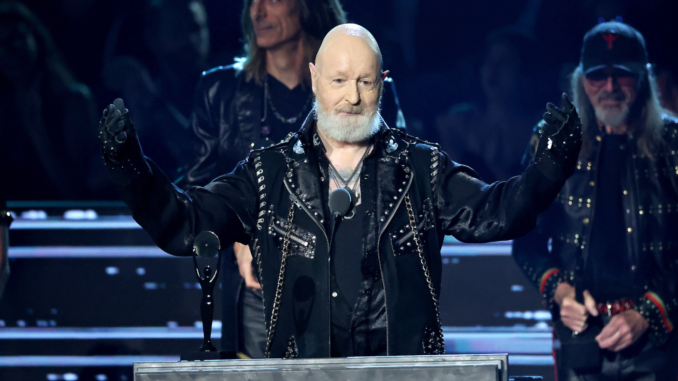
Metal God Roars: Rob Halford Slams Premier League’s ‘Rainbow Ban’ as Backwards Step for Equality
Rob Halford, the legendary frontman of Judas Priest and one of the most influential openly gay figures in heavy metal, has taken aim at the Premier League over its decision to scrap rainbow-themed captain’s armbands and the popular Rainbow Laces campaign for the upcoming season.
The league announced earlier this week that it would not continue its long-standing collaboration with Stonewall, the UK-based LGBTQ+ rights organisation behind Rainbow Laces. Since its launch in 2013, the initiative has seen players and captains across England’s top division wear rainbow-coloured laces and armbands to signal support for LGBTQ+ inclusion in football. Millions of pairs of laces have been distributed, and the campaign became a highly visible annual moment in the football calendar.
In place of the Stonewall partnership, the Premier League plans to roll out its own equality-themed programme next February to coincide with LGBTQ+ History Month. Officials have said the move reflects a “new strategic direction,” but the change has sparked criticism from equality advocates who see it as an unnecessary break from a proven and symbolic tradition.
Halford, speaking in an interview about the news, described the league’s choice as “a reversal of progress” and “a missed opportunity to stand firm in the face of growing division.” The singer, who made headlines in 1998 when he came out publicly, argued that football has a responsibility to remain a space where everyone feels represented.
“Football influences millions of people, not just in the UK but worldwide,” he said. “Symbols like rainbow laces are not decoration — they are a lifeline for those who need to know they belong. Dropping them sends the wrong message at the wrong time.”
The Premier League’s rainbow campaigns have not been without controversy in the past. A few players have declined to wear rainbow armbands, citing personal or religious reasons, while others have openly supported them as a sign of solidarity. In each case, the league avoided imposing strict penalties, instead stressing that participation was encouraged but voluntary.
For many supporters, the rainbow armbands and laces were about more than one match week a year. Grassroots clubs, amateur leagues, and fan groups often mirrored the Premier League’s efforts, creating a chain reaction of visibility across different levels of the game. Critics of the decision to end the Stonewall partnership fear that the change will cause that ripple effect to fade.
Halford’s comments have struck a chord beyond the music world. His decades-long career has been defined not just by soaring vocals and leather-clad performances but also by his willingness to be openly himself in a genre that once offered little space for LGBTQ+ representation. Fans and equality advocates have pointed out that his perspective carries weight because he has lived through eras when visibility was far riskier.
“Taking the knee to oppose racism is right and powerful,” Halford said. “But to then remove one of the most recognisable signs of support for the LGBTQ+ community undermines that spirit of inclusion. You cannot champion one form of equality while quietly setting aside another.”
The Premier League has yet to issue a detailed public response to Halford’s remarks. Whether the backlash from figures inside and outside football will lead to a rethink remains to be seen. For now, Halford’s words are being shared widely among supporters who believe the league’s pitch should be open to everyone, without exception.
What began as a fixture in the football season has now become a talking point far beyond the sport itself. And if Halford has his way, the roar of disapproval will not fade until the rainbow returns to the game.